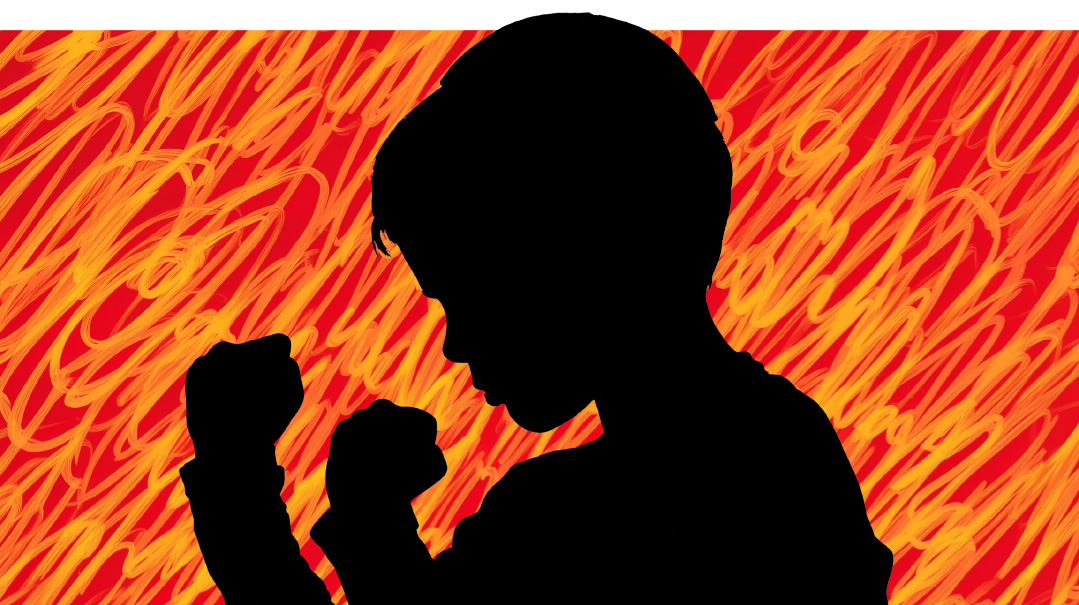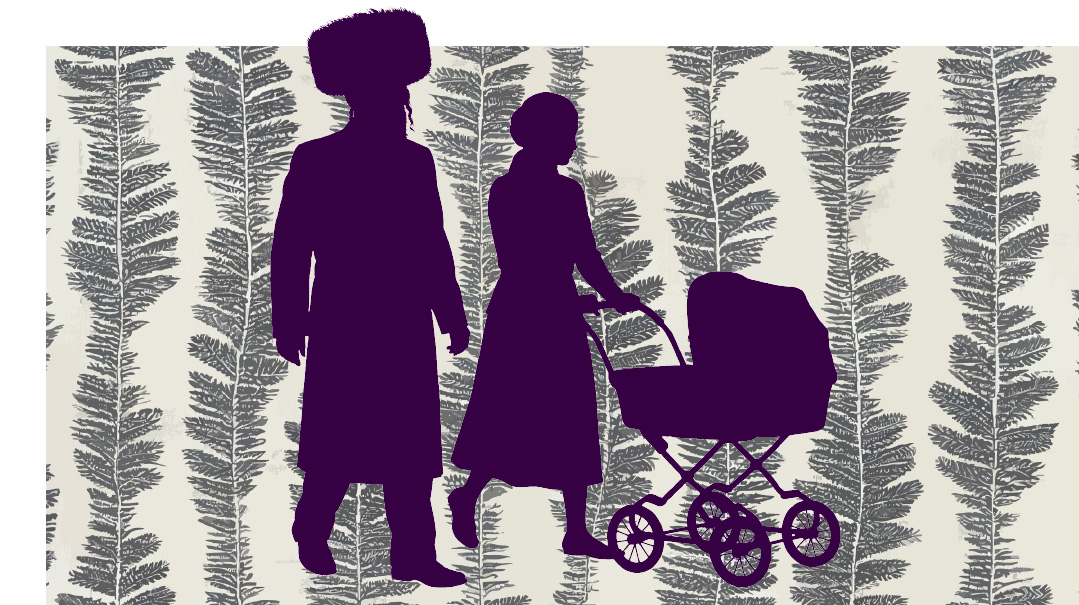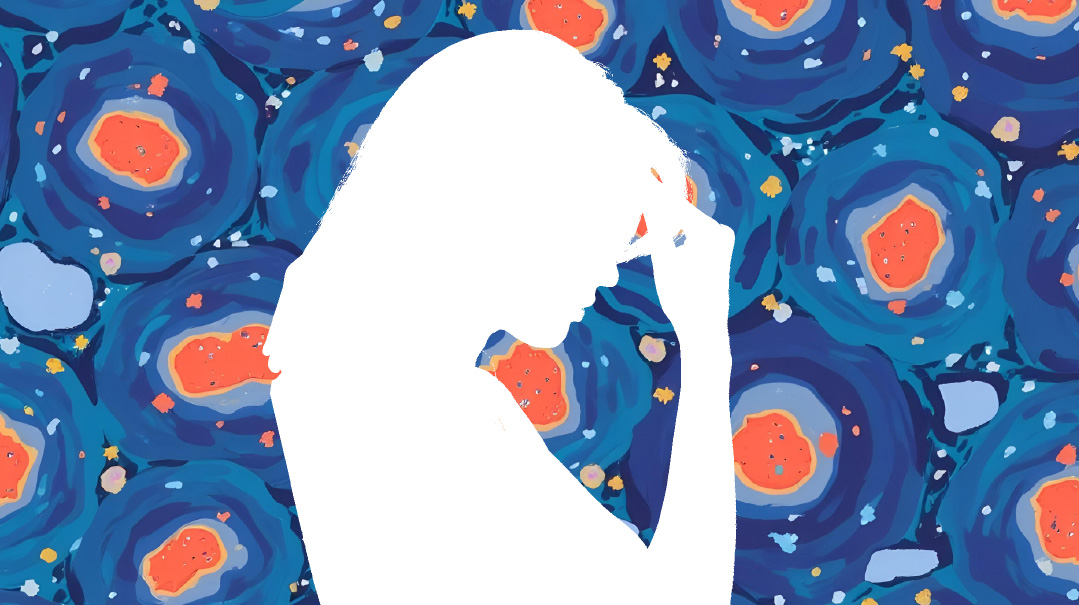Bipolar Disorder
| November 4, 2020I never know what will happen in the future. Will I stay stable? Will I become manic?

For years, whenever I’d see people struggling with obvious mental illnesses, I couldn’t relate to their struggles. There was this huge line that divided me from them: I was normal and they weren’t.
Until I ended up on the other side of the line.
It started when I was 27, married with two kids. Life was busy but manageable. Then things started to change. I started having sleep problems, and I began feeling low, depressed. I tried to do everything I could to get myself back together, but nothing helped.
Then I found out about a workshop being given by an author I liked and decided I was going to attend, despite my struggles, despite the fact it was across the country in California. I barely slept over the course of the workshop. The kosher food was inedible, and I hardly ate. Yet by the end of the workshop, I was feeling happy and connected to others — which in retrospect, didn’t make any sense.
I’m usually very organized, but when I got to the airport, I went to the wrong gate and missed my flight. At the wrong gate, they were getting ready to board another flight to New York, so I spent $500 on a new flight, instead of going to the correct gate and waiting for another flight. I rationalized it by telling myself that I was going to be really successful and wealthy.
On the way home, I spent the entire five-hour flight writing in my diary, trying to process everything I’d learned. But when I later looked back in my diary, nothing I’d written made any sense.
When I got home, my mind was racing. I told my husband to drop off my kids at my in-laws — I intuitively knew it wasn’t a good idea for me to be around them. After a day or two, I started having chest pains. I thought I was having a heart attack and called 911. I’m naturally a quiet person, but when the police came, I started yelling because they weren’t taking me seriously. The police handcuffed me and brought me to a psych unit.
I looked around at the other patients in the ward. What am I doing here? I’m normal, they’re not.
I was very agitated and restless, and was having extremely unpleasant thoughts. I was injected with a strong medication called Haldol. I slept for 20 hours and woke up feeling more like myself.
They brought me to another psych unit where I stayed for the weekend. The nurses kept trying to convince me that I had bipolar disorder, but I didn’t believe them. I thought it was just sleep deprivation. I went home and back to my life.
After two weeks, I started having trouble sleeping again. I thought I had to go to a different state and nurse my newborn niece. I was brought to the hospital by Hatzalah. But at the hospital, I spent two weeks avoiding my meds, drinking nonstop, and showering endlessly. Some of the night staff at the hospital was mean, and it was difficult dealing with them, even when I felt better. I realized the only way I could get out of the hospital was by taking medication. The medication helped me, and after three-and-a-half weeks, I was discharged.
I went back to my normal life, but everything was different. My life now involved trips to the psychiatrist, medication, and a great need for sleep. I was embarrassed of what I’d done during my manic episode. I felt like I’d lost touch with who I was.
It took time for me to accept my diagnosis. Years.
Now, nine years later, I’ve not only accepted my condition, I’ve embraced it. I’ve come to realize that I received a special gift. The gift came unexpectedly. It wasn’t wrapped. As I got to know it better, I came to understand it.
True, my life is different now. I’ve been in and out of hospitals. I take medication three times a day and see my psychiatrist regularly. It’s hard. It’s hard knowing that I may not always be able to control myself. It’s hard knowing that some people wouldn’t accept me if they knew I had bipolar. It’s hard looking for a job in the mental health field when you have a mental illness.
I think back to the time when I didn’t know what depression felt like, when all I experienced was occasional sadness. I remember when I’d go to weddings and stay late dancing. Now I have to be so careful with my sleep that staying out late is unfathomable.
I used to worry about taking any pills, even Tylenol. Now I take nine pills a day. One of the pills I take causes acne, as well as liver, kidney, and thyroid problems. It also causes me to eat more than I want to. I used to be really creative, I wrote well, and could come up with creative ideas easily. Now I struggle to write occasionally. My memory and concentration used to be strong. Now I struggle to remember names, and sometimes have difficulty completing tasks.
But I’ve learned that everything in life is a gift. Hashem gives and takes away gifts at will. If I’m unable to be as creative as I used to be, then Hashem doesn’t need that. If I can’t concentrate on things, Hashem doesn’t expect more than that.
I’m grateful we’ve found a medication that has kept me stable. I’m grateful my husband has stood by me though everything — even when I was slightly manic and decided I wanted to get divorced. I’m grateful for the therapy that has helped my children process everything.
Bipolar has taught me how to live my life. I’ve become stronger and more understanding of others. Yes, it’s hard to struggle, but struggling gives me stamina. Living with bipolar has increased my bitachon. While I know that the medication I take comes with side effects, Hashem runs the world, and He’ll decide what will happen to me.
Bipolar has taught me to take care of myself: going to sleep early, taking my medication, trying to eat right. Those are great lessons for life, and we all learn them eventually. I just got to learn them faster than most people.
I never know what will happen in the future. Will I stay stable? Will I become manic? Every day is a new learning experience, every obstacle a lesson. I know there will be more challenges in the future. But I also know that — with G-d’s help — I can handle whatever comes up. I’ve learned to find serenity in the unknown.
Nine years ago, I received a gift. Sometimes I don’t want it. Sometimes I can almost forget I have it, but sometimes it’s raw and seems ugly. But it’s a gift, nonetheless.
Elisheva can be contacted through Family First.
Please don’t say
“I’m manic” when you’re describing yourself as hyper. Mania is not feeling hype; it’s out of a person’s control.
“I know exactly how you feel.” I appreciate that you’re trying to be understanding, but unless you have bipolar, you probably don’t know what it feels like.
“Snap out of it.” If I could, I would, but I can’t control my disorder. I’m trying my best to deal with it.
It helps if you say
“I’m happy to talk if you need someone to listen.”
“I’m amazed at your strength and how you deal with this nisayon.”
“I love and respect you just as much now that I know that you have bipolar.”
“Tell me more about what it’s like to have bipolar”
“How can I help?”
I wish people knew that
I can handle just as much as other people when my mood is stable.
Psych units are not bad. I’ve connected to wonderful people in hospitals, and met amazing nurses.
Some of my friends who have bipolar are the most “normal” people I know.
I don’t consider myself worse off than someone who doesn’t have bipolar disorder.
(Originally featured in Family First, Issue 716)
Oops! We could not locate your form.












